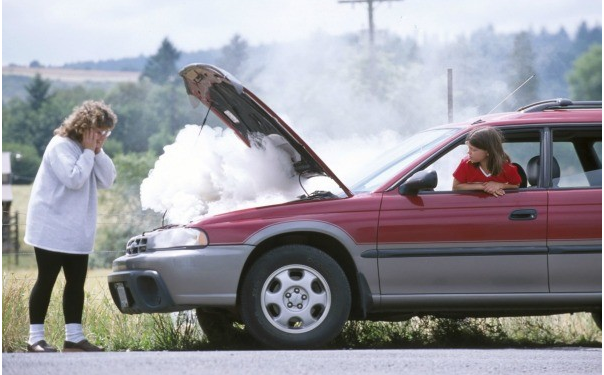Protect Your Vehicle Engine Overheating With Qualified Mechanic in Melbourne

Keeping your vehicle’s engine cool is essential for day to day driving and for people who are racing enthusiasts, it is mandatory to keep the engines from overheating as air intake for radiators and oil coolers need to be kept to a minimum because this creates aerodynamic drag and cost valuable lap time. First, let me set one thing explicit vehicle heat management will not increase the vehicle’s horsepower or performance but will maintain the vehicle’s optimum performance for the longer duration of time. Engine temperature has been scientifically proven to decrease performance, reliability and decrease the life expectancy of your vehicle
There are many reasons why your vehicle might be overheating and if you notice it immediately take your vehicle to the service centre to be tested by car service Melbourne experts.
Reasons for Your Car Overheating
Overheating of your car engine could result from:
Water Pump Failure – When the water pump isn’t working popularly it will not circulate the engine coolant to remove excessive heat from inside and when this happens your car will overheat and should be taken to the car mechanic.
Stuck Thermostat – The thermostat regulates your car’s engine temperature. A common cause of car overheating is a low-cost thermostat stuck closed which restrict the coolant flow.
Radiator Blockage – If antifreeze can’t flow through the radiator, the heat can’t disperse into the air as it should leading to overheating of the engine.
Low Engine Coolant Level – An engine coolant leak whether it is internally or externally can reduce the level of coolant in the system, preventing proper cooling, thus increase the heat and your car may overheat.
Plugged Heater Core – The heat exchanger inside the car that helps to keep you warm on cold days can cause the engine to overheat. If the heater core is plugged, coolant flow restricts.
Blown Head Gasket – A blown head gasket can be the cause of overheating of your car engine as coolant can leak out and air gets sucked in and the engine temperature needle wraps around to full hot.
Whatever the reason for overheating, you shouldn’t ignore, take your vehicle to car service Melbourne station to get it tested and checked by an expert to outline the primary cause of overheating.
However, if you ignore the overheating problem, it can lead to severe damage and would cost you more in their repairs.
How Overheating Affects Your Car
Engine Damage
An engine is designed to work within a specific temperature range, if temperature exceeds this an expensive and irreversible damage can occur to the internal components. So keeping excessive heat away can increase the lifespan as well as maybe even improve the engine’s performance. Each engine type has different requirements, like the older vehicles, do not have ECU. They rely heavily on cool intake and cool transmission and as these cars use more mechanical parts and so fatigue due to heat on components is a more significant issue. On the other hand, modern cars have electronic controlling meaning that ECUs and sensors are usually well protected but a failing sensor could cause the vehicle to behave erratically or cause further internal damage.
Brake Failure
As with the engine, brake system also works in an optimal temperature window and if this temperature window exceeds, then the brake system may not work to its full potential and may even fail during the braking phase which could be very dangerous. The hydraulic braking system has three components a cylinder, brake lines and disks. The first two components are most affected by heat being passed onto them by other hot parts. So it is vital to allow the hot fluid inside to cool as well as keep some critical areas shielded by using high-grade heat tape on Australia vehicles from other hotter components that may over boil the brake fluid. High-grade heat tapes, exhaust wraps, turbo blankets and heat sleeves can also be used to protect your vehicle and can be bought online from Koolwrap.
Intercoolers/Heat Exchangers/Radiators can cause a problem
These are temperature management devices which use the flow of air to cool down the internal passing fluids or gases. The air gets warmer which needs to be expelled efficiently. If not done correctly it can be dangerous.
Ways to Keep Your Engine Cool
To help you curb the issue of overheating and make your ride more powerful and pleasant, here I have pulled together a few ways to keep your engine cool.
- Use Exhaust Wraps
The engine block gets hot, but by far the most significant source of radiant heat under the hood of any car is the exhaust. With exhaust gas temperatures in the multiple hundred-degree ranges under throttle can lead to damage. However, there’s nothing much that can be done to stop the heat here but can work to retain it in the pipes to keep it from affecting other systems. One effective way is to use heat wrap for pipes to retain the heat here so that it doesn’t affect the engine.
-
Add an engine coolant
Adding an engine coolant, especially in the hot months can keep your engine from overheating. To check the coolant level, open the hood and locate the coolant reservoir. Indicator lines on the reservoir show the coolant level. If too low, add the appropriate amount of coolant and reattach the cap. Engine coolant is available in the market as a 50/50 mix of water and coolant. You can also buy concentrated coolant and mix it yourself or take the car to the service centre. Here is an advice-never add coolant to a hot engine as it can cause the engine block to crack due to sudden temperature change.
-
Consider replacing the battery
If you have an older car battery, it may not provide the power it once did and your car has to work harder resulting in overheating. Take your vehicle to a reputed service station with certified technicians like the Western Auto Services in Melbourne where the mechanic can help you determine whether you may need a new battery. On the flip side, if you find yourself in a situation where your car overheats, follow these steps to ensure you and your vehicle remain safe:
- Pull over and turn off the engine. Let your car cool for a minimum of 10 minutes.
- Open the hood of your car to allow the heat to clear out quickly.
- Once your car has cooled off, turn the ignition to its first position but don’t start the engine. If you see that the temperature gauge is within a reasonable range and engine fluid levels are sufficient, try to start the engine.
- If the engine makes unusual sounds or it does not start at all, it’s best to stay on the safe side and call for roadside assistance to have your car towed. Allow a mechanic to inspect it and make the necessary repairs.
- Consider getting your air con regassed
There is a temperature setting in all vehicles which controls the on time for the AC compressor and also the flow of hot engine coolant into the heater core located in the dash. The heat will even flow with the temperature set at the lowest and the flow valve closed, due to conduction there will be heat leeching into the heater core which could result in overheating so consider car air conditioning regas in Melbourne by taking your vehicle to an expert mechanic.
The above mentioned are some of the tips to protect your car engine from overheating and maintain its performance for longer.






